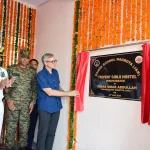In the realm of medical practice, humility stands as a fundamental virtue that significantly impacts the interactions between healthcare providers and patients. Humility, often described as the quality of having a modest and unpretentious view of one’s own importance, is an essential attribute that humility is a crucial trait for medical practitioners as it promotes patient-centered care, open communication, and continuous learning. Here’s how humility contributes to the noble medical profession. Healthcare professionals should cultivate to ensure the highest quality of care and patient outcomes. Absolutely true, a fundamental principle that applies not only to the medical profession but to any field of expertise. This essay delves into the multifaceted reasons why humility is vital in medical practice, exploring how it fosters effective communication, promotes patient-centered care, facilitates collaboration, enhances medical decision-making, and ultimately contributes to the betterment of healthcare systems.
Effective Communication and Patient-Centered Care
At the core of medical practice lies the necessity for effective communication between healthcare providers and patients. Humility plays a pivotal role in establishing open and honest lines of communication. When medical professionals approach their patients with humility, they acknowledge the limitations of their expertise and create an environment where patients feel comfortable sharing their concerns, symptoms, and medical history. This kind of environment allows for a more accurate diagnosis and treatment plan, as patients are more likely to provide crucial information when they sense that their voices are being heard and respected. Furthermore, humility contributes to the development of patient-centered care, which is a cornerstone of modern healthcare.
Respect for Patients’ Autonomy
A humble healthcare provider recognizes that patients are individuals who have their own values, with unique experiences, needs, beliefs and preferences. Incorporating patients’ values and preferences into treatment plans, results in more personalized and effective care. Practitioners respect these and work collaboratively with patients to find the best treatment plans that align with their individual needs. They approach patient care with an attitude of respect for patients’ autonomy and a willingness to collaborate in decision-making. They listen to their patients’ concerns, collaborate with them to make informed decisions, and acknowledge that they don’t have all the answers. This approach fosters trust and a strong doctor-patient relationship. This approach not only empowers patients to actively participate in their own healthcare journey but also fosters trust between patients and providers. Humble medical professionals prioritize the well-being of their patients above all else.
Facilitating Collaboration and Teamwork
Medical practice is rarely a solitary endeavour. It involves a complex network of professionals, including doctors, nurses, technicians, and administrative staff, all working together to provide comprehensive care. Humility becomes a linchpin in this collaborative environment. When healthcare professionals exhibit humility, they acknowledge that each member of the team brings a unique skill set to the table. In healthcare settings, collaboration among various medical professionals is essential. Humble practitioners value the expertise of their colleagues, working together to provide comprehensive and holistic care. They recognize that no individual has all the answers. This recognition fosters an atmosphere of mutual respect and cooperation, where the focus shifts from individual recognition to the collective goal of patient well-being. A humble medical practitioner is open to seeking guidance, opinions, and expertise from colleagues.
Enhancing Medical Decision-Making
In the complex landscape of medical practice, making sound decisions regarding diagnosis and treatment is of paramount importance. Humility plays a significant role in this decision-making process. A humble healthcare provider recognizes that medicine is a constantly evolving field, with new research and discoveries being made regularly. They acknowledge that no individual can possess all the answers, and there is always room for learning and improvement. Humility drives medical professionals to critically evaluate their own judgments and seek second opinions when necessary. This approach helps mitigate biases and errors that can arise from overconfidence. Additionally, humility encourages a culture of continuous learning, where medical practitioners are open to staying updated on the latest advancements in their field. This commitment to learning ensures that patients receive the most current and evidence-based care, ultimately leading to improved outcomes.
Cultivating Patient Trust and Confidence
Trust is the cornerstone of the patient-provider relationship. Patients place their lives and well-being in the hands of medical professionals, making it imperative for healthcare providers to cultivate trust and confidence. Humility is a powerful tool in building and maintaining this trust. When healthcare providers exhibit humility, patients perceive them as approachable, empathetic, and genuine.
Admitting Mistakes
Medicine means always learning. Humble medical professionals are more likely to acknowledge when they make mistakes or encounter challenges or don’t have a clear diagnosis. Admitting mistakes doesn’t mean incompetence, rather conveys sincerity of purpose and striving to learn. This transparency is crucial for patient safety and allows for prompt corrective actions. This transparency not only demonstrates integrity but also allows patients to understand that errors are an unfortunate part of healthcare and are actively being addressed. Moreover, when a healthcare provider admits to not having all the answers, it humanizes them and creates a sense of shared vulnerability. This shared vulnerability can foster a stronger bond between the patient and the provider, leading to improved patient satisfaction and adherence to treatment plans.
Patients appreciate doctors who are willing to own up to errors and work towards solutions. They readily admit when they lack knowledge or experience in a particular area and are not afraid to ask for assistance. This willingness to learn from others not only enhances patient care but also contributes to the professional growth of all team members. As a result, the overall quality of care improves, and medical errors are reduced due to the combined knowledge and effort of the team.
Contributing to the Betterment of Healthcare Systems
The impact of humility extends beyond individual patient interactions; it also has the potential to positively influence entire healthcare systems. Humble medical practitioners contribute to a culture of continuous improvement and ethical practice within healthcare institutions. They prioritize patient safety, open communication, and collaboration, which are essential elements in preventing medical errors and improving overall healthcare quality.
Openness to Learning
Medicine is an ever-evolving field with new research and discoveries emerging regularly. Humble practitioners recognize that they don’t know everything and are open to learning from colleagues, research, and patient experiences. This mindset drives them to stay updated and adapt their practices for the benefit of their patients.
Continual Improvement
Humble practitioners are always seeking ways to improve their skills and enhance their knowledge. They attend conferences, engage in professional development, and actively seek feedback to become better doctors over time.
Cultural Sensitivity
Humble medical professionals acknowledge and respect the diverse cultural backgrounds of their patients. This sensitivity helps avoid cultural biases and provides care that is tailored to the individual patient’s context.
Remember, humility doesn’t mean lacking confidence or competence. It’s about recognizing the limits of one’s knowledge, respecting others’ perspectives, and maintaining a patient-centered focus to provide the best possible care. Additionally, humble healthcare providers often become role models for their colleagues and trainees. When experienced professionals exemplify humility, it sets a precedent for the next generation of healthcare practitioners. This creates a ripple effect that can lead to a more compassionate, patient-centered, and effective healthcare ecosystem.
A culture of humility can also inspire institutional policies that prioritize patient well-being and emphasize the importance of ethical conduct. In contrast, arrogance can lead to dismissive attitudes towards patients, reluctance to admit mistakes, resistance to learning new methods, and strained relationships with colleagues. It’s essential to cultivate humility to maintain the integrity, effectiveness, and ethical standards of the medical profession.
Conclusion
Humility stands as an indispensable virtue in medical practice due to its multifaceted impact on patient care, teamwork, decision-making, trust-building, and healthcare systems. Humble healthcare providers foster effective communication, enabling patients to actively engage in their care. They promote collaboration, recognizing the strengths of each team member while seeking opportunities for continuous learning. Humility enhances medical decision-making by encouraging critical self-evaluation and embracing the dynamic nature of medicine. It cultivates patient trust and confidence through transparent and empathetic interactions.
Moreover, humility contributes to the betterment of healthcare systems by shaping a culture of improvement, ethics, and patient-centered care. Ultimately, humility is not a sign of weakness in medical practice; it is a display of strength and wisdom. It reflects a deep understanding of the complexities of healthcare and a commitment to placing patients at the heart of all medical decisions and actions. As healthcare continues to evolve, humility remains an enduring principle that guides healthcare professionals toward excellence in patient care and the advancement of medical science.
(The Author is Sr Consultant Surgeon at Mubarak hospital, a Certified Qualified Professional in Quality Healthcare Policy Planning and has worked as Director Total Quality management, Clinical auditor & Team leader with many national and international accreditation Bodies. He can be reached at [email protected]





